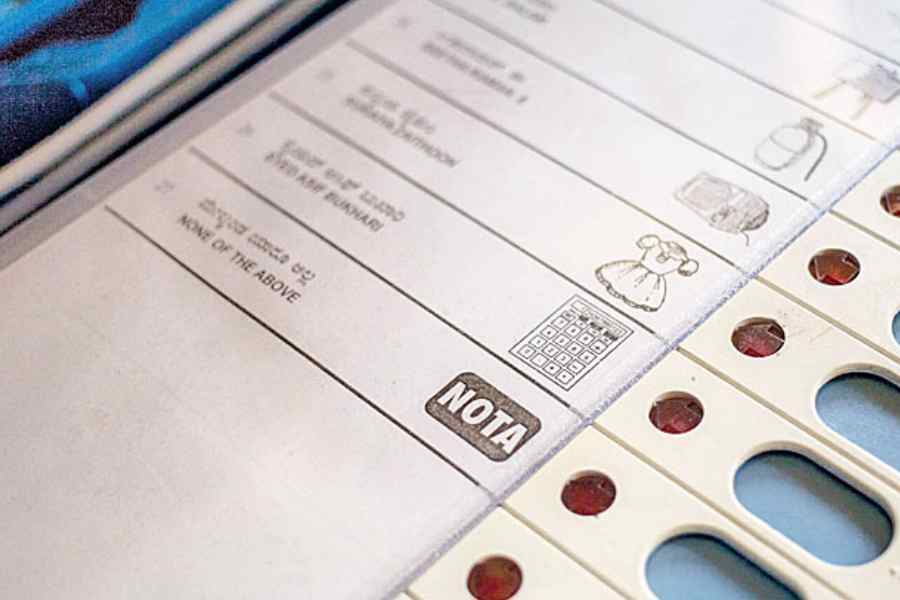A vote for ‘none of the above’ in an election is an expansion of democratic choice. Last week, the Supreme Court sent a notice to the Election Commission of India regarding a public interest litigation that asks for Nota to be publicised as a fictional candidate. This would require regularising certain rules around the Nota vote. For instance, those candidates who score below Nota should not be allowed to contest elections for the next five years. Then, if the Nota candidate gets the maximum number of votes, there should be a fresh election, where again, those getting fewer votes than Nota will be disallowed. The rules would ensure that even when there was an unopposed candidate, an election would be necessary because the candidate must contest against Nota. As a fictional candidate, Nota’s presence would prevent walkover elections such as happened this time in Surat. There is little that is democratic in a walkover situation. The people’s choice, and their satisfaction at being able to exercise that choice, are the priorities.
The option for Nota was granted in 2013, but its effect in the elections has remained symbolic since then. Nota votes register people’s dissatisfaction with all candidates, yet nothing is done about it. The candidates, even if they receive fewer votes that Nota, are considered winners. This is unlike certain other countries, such as Indonesia, where, in case of an unopposed candidate, maximum votes for Nota mean a fresh election. The PIL indicates that Nota as a fictional candidate with the necessary rules around the number of votes it garners would enforce greater accountability among the other candidates and conscientiousness regarding electoral representation. Nota’s presence would be an effective tool in democratic choice if publicised as a fictional candidate and not just used symbolically to record dissatisfaction. The question of funds and infrastructure for fresh elections when necessary, which is usually cited as the reason against making Nota a meaningful presence, would have to be addressed. It would also compel parties to have in hand credible candidates should there be another election to the same constituency. These are in themselves strong enough reasons for candidates to be responsible in administration and responsive to their electorate. Projecting the fictional candidate would require positive efforts by the government to publicise its function. Nota represents the people’s disapproval. Who would be this candidate’s campaigner?











